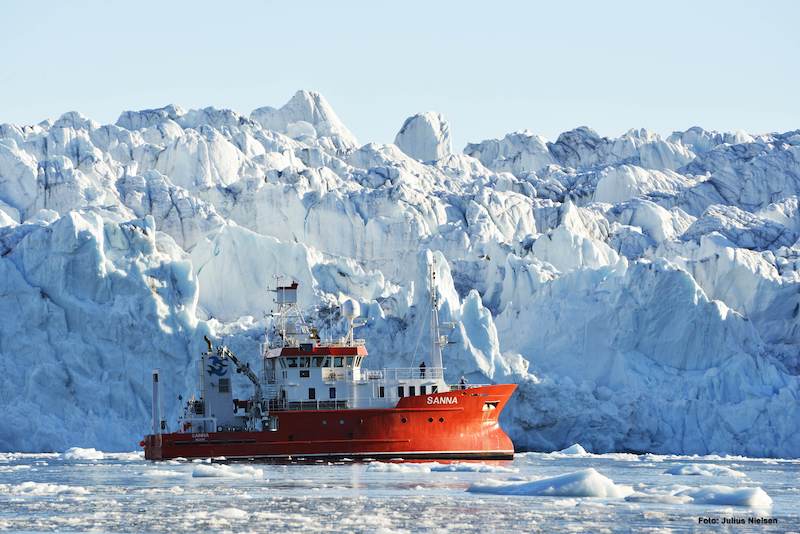From 28 June to 10 July, a team from the Flemish Marine Institute (VLIZ) conducted a climate research expedition in Greenland in order to determine the effects of melting glaciers on the marine ecosystem.
Between 2000 and 2010, research has shown that Greenland's glaciers were retreating by 110 metres per year. Because these glaciers bring in fresh run-off water, nutrient-rich deep water rises.
As a result, up to ten times the normal amount of plankton, fish and other marine species can be found in the summer.
It is feared that with global warming, glaciers will continue to retreat with major negative consequences for nature and fisheries.
Related News
- Belgian start-up develops recycled flip-flops to tackle plastic waste
- More drought leads to more investment in water companies
- Belgium exceeds its own biocapacity with large carbon footprint
To that end, researchers from the VLIZ are studying the effects of climate change on the distribution of plankton in a large area of fjords more than a hundred kilometres long.
This work was carried out on board the Greenlandic research vessel RV Sanna, by using the Video Plankton Recorder (VPR), which measures plankton content.
With the VPR, they were able to obtain images of plankton in real time and in high resolution (25 images/second).
This process has already proved its worth in the North Sea, as part of the 'LifeWatch' programme run by the VLIZ. By simultaneously measuring depth, temperature, turbidity and salinity, researchers can quickly obtain an accurate picture of plankton and its distribution in the water.

